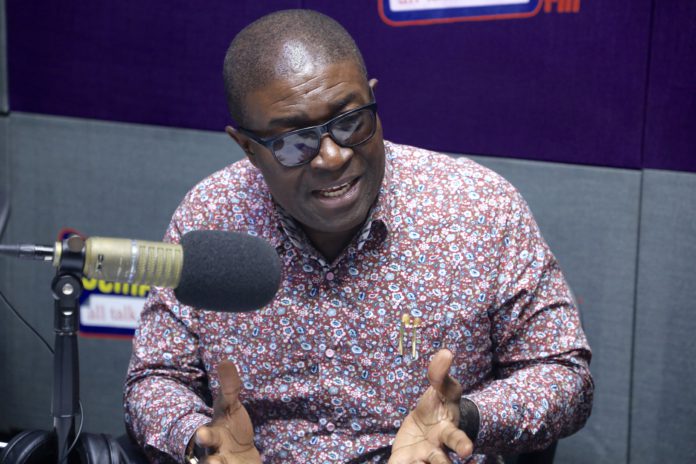Claim: The Vice Chairman of the Bawumia Campaign Team, Nana Akomea, has claimed that the New Patriotic Party (NPP) achieved single-digit inflation in 2017, 2018, and 2019.

Verdict: Misleading. Data from three financial institutions, including the Ministry of Finance, the International Monetary Fund, and the World Bank, recorded double-digit inflation in 2017. The Ministry of Finance, the International Monetary Fund, and the World Bank quoted 11.8%, 12.4%, and 12.4%, respectively, for the year-to-year inflation rate in 2017. The data, however, revealed that 2018 and 2019 recorded single-digit inflation.
Full Text
The Vice Chairman of the Bawumia Campaign Team, Nana Akomea, has claimed that the New Patriotic Party (NPP) achieved single-digit inflation in 2017, 2018, and 2019. `He made this statement during an exclusive interview on Joy News’ AM Show on October 7, 2024.
Mr Akomea’s claim was part of his argument that the NPP government was successfully steering the economy toward recovery until the onset of the COVID-19 pandemic.
As the Managing Director of the State Transport Company (STC), he also used this claim to explain why STC began recording losses after the pandemic struck.
“Between 2017 and 2019, during those three years when the cedi was stable, inflation was single digit, the deficit was manageable, the macro economy was stable, and the state enterprises were doing well,” Mr Akomea said.
His assertion is between 15:04 and 15:19 minutes into the interview, which is available on Joy News’ YouTube channel.
Verification
Imagine you have ten coins, and with those ten coins, you can buy ten pieces of candy. Now, imagine one day the price of candy goes up, and now you need 12 coins to buy the same ten pieces of candy. That change, where things cost more than before, is called inflation.
This means recording single-digit inflation is often seen as a sign of economic stability, as opposed to double-digit inflation, indicating higher and potentially destabilizing price increases.
Did the NPP government record single-digit inflation from 2017 to 2019?
DUBAWA researched data from three institutions: the World Bank, the International Monetary Fund, and the Ministry of Finance.
The Ministry of Finance, the International Monetary Fund (IMF), and the World Bank reported that Ghana’s inflation rates declined generally between 2017 and 2019.
| INFLATION RATES (2017-2019) | |||
| Ministry of Finance | IMF | World Bank | |
| 2017 | 11.8% | 12.4% | 12.4% |
| 2018 | 9.4% | 9.8% | 7.8% |
| 2019 | 7.9% | 7.1% | 7.1% |
However, in 2017, inflation was relatively high, with the Ministry of Finance (Page 2 of the 2018 Mid-Year Budget Statement and Economic Policy) reporting 11.8%, while both the IMF (Under the country data) and World Bank registered slightly higher rates of 12.4%.
By 2018, inflation had dropped significantly, with the Ministry of Finance (Page 6 of the 2019 edition of the Mid-Year Budget Statement and Economic Policy) reporting 9.4%, IMF 9.8%, and the World Bank giving a notably lower figure of 7.8%.
In 2019, the trend of reduced inflation continued, with the Ministry of Finance (Page 4 of the 2019 Consolidated MDA Annual Budget Performance Report) recording 7.9%, while both the IMF and World Bank reported a consistent 7.1%.
The data clearly shows that all financial institutions, including the IMF, World Bank, and the Ministry of Finance, recorded double-digit inflation in 2017. This evidence contradicts the claim made by Nana Akomea, the Vice Chairman of the Bawumia Campaign Team.
Conclusion
While inflation steadily declined between 2017 and 2019, the NPP government did not achieve single-digit inflation in 2017, as the Ministry of Finance, IMF, and World Bank reported double-digit figures. However, by 2018 and 2019, inflation fell to single digits, with all three institutions confirming this trend.


